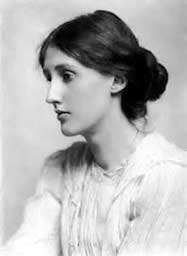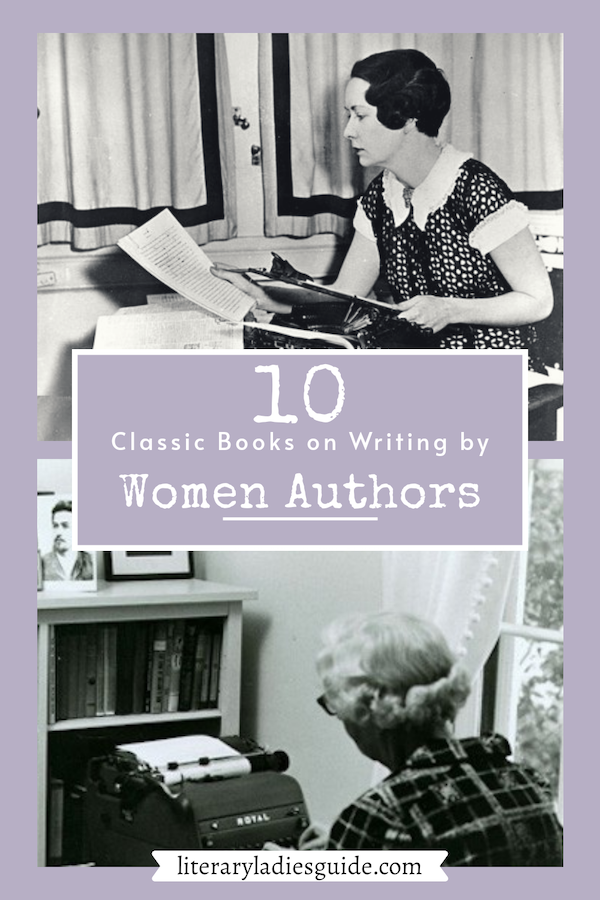How Important Is Solitude for Writers?
By Nava Atlas | On April 16, 2017 | Updated February 22, 2025 | Comments (2)

Virginia Woolf famously wrote, “A woman must have money and a room of her own if she is to write fiction.” Leaving aside the question of what a woman writes—fiction or nonfiction, prose or poetry, journalism or blog posts, just how important is solitude for writers? How critical is it to have a room of one’s own?
In learning about the writing lives of classic women authors, the universality of the issues and struggles all writers experience is striking. Finding quiet time to write and a modicum of privacy was as great a challenge in the 19th century as it is for today’s women—writers, creators, workers, mothers …
. . . . . . . . .
Harriet Beecher Stowe:
She needed a room of her own

See also: Harriet Beecher Stowe, Motherhood, and Writing
Virginia Woolf wasn’t the first to express the need for a private space. Harriet Beecher Stowe, best known for the anti-slavery novel Uncle Tom’s Cabin, neatly foreshadowed Woolf’s words in a letter she wrote to her husband, “If I am to write, I must have a room to myself, which shall be my room.”
Stowe was the mother of seven children (three of whom she lost, one as a toddler and the other two in young adulthood). Yet she needed to augment the family’s income, which came from writing anything she could get paid for, all the while being responsible for all the household duties.
“All last winter,” Stowe continued, “I felt the need of some place were I could go and be quiet and satisfied.” Still, time apart from her children in pursuit of writing made her feel guilty:
“Our children are just coming to the age when everything depends on my efforts … Can I lawfully divide my attention by literary efforts?”
While Stowe’s husband was little no help with the home or children, he encouraged his wife’s literary efforts, which in the end, paid off handsomely, not only in terms of financial success, but with the seismic shift in public opinion on slavery caused by the publication of Uncle Tom’s Cabin.
From her letters, it was clear that when it came to privacy and quiet time, Stowe muddled though, just like most of us, snatching bits of tranquillity as best she could.
. . . . . . . . .
L.M. Montgomery:
“Enough spare minutes to do some writing”
See also: L.M. Montgomery: Writing Without Time or Privacy
You needn’t have a passel of kids running around at home to feel pressed for time and privacy to write. L.M. Montgomery, best known for the Anne of Green Gables series, struggled with this issue even before she had her two sons.
As a young working girl in 1910, she wrote in her journal, “I have had a hard time trying to arrange for enough spare minutes to do some writing.” First she tried to do so in the evenings, alone in her room after a day’s work of writing copy in a newsroom: “Well, I tried it. I couldn’t string two marketable ideas together.”
Next she tried getting up at six in the morning to try to write before going to work, but found that she “could not do good work in a chilly room on an empty stomach.”
Musing on a solution to her dilemma, she continued, “Now it used to be at home that I thought undisturbed solitude was necessary that the fire of genius might burn.”
“I must be alone and the room must be quiet. It would have been the last thing to enter my imagination that I could ever write anything at all, much less anything of value, in a newspaper office, with … people coming and going and conversing, telephones ringing and machines thumping and dragging overhead.”
Yet the hubbub of the news office seemed most conducive to young Maud Montgomery, snatching a bit of time here and there between calls and deadlines:
“Every morning I write and not bad stuff either.” Who among us can’t related to Montgomery’s longing for “enough spare minutes to do some writing,” especially if it’s writing that isn’t compelled to be finished by some real-world deadline? And along with those spare minutes, some sweet solitude.
. . . . . . . . .
May Sarton: “Loneliness is the poverty of self;
solitude is richness of self.”

See also: “Now I Become Myself”
Journal of a Solitude by May Sarton is this multi-faceted writer’s 1973 follow-up to Plant Dreaming Deep, in which she continues her search for self.
Published in 1973, Journal of Solitude would later become a key text in women’s studies courses. Like her other books, both memoirs and novels, this one explores isolation, solitude, love, relationships, sexual orientation, success, failure, gratitude, love of nature, the seasons, and the struggles of a creative life.
Through her various journals, Sarton inspired readers to recognize the sweetness in purposeful solitude and its role in healing and reflection: “I hope to break through into the rough, rocky depths, to the matrix itself. There is violence there and anger never resolved. My need to be alone is balanced against my fear of what will happen when suddenly I enter the huge empty silence if I cannot find support there.”
Sarton deals with aging and illness in her later memoirs Recovering, At Seventy, At Eighty Two, and After the Stroke. Link through for quotes from Journal of a Solitude illustrate her facing of buried emotions, as she seeks not so much answers, but dares to ask hard questions.
. . . . . . . . . .
More thoughts on solitude

Is total solitude ideal?
But wait—let’s rethink the latter. Might finding the time and place to writing or other creative activity be easier if total solitude isn’t necessarily the ideal to aspire to? What if, like in Montgomery’s case, a bit of hubbub is more conducive to getting work done?
Now that my kids are grown and I can actually attain that perfect, rapt silence I so longed for once upon a time, ironically, I find I get more work done (and enjoy it more) when I work with one fellow writer or another. How great that often, a writing partner is one of my kids — or both at once!
I love to write in a café or library with just the right amount of background noise and just enough strong coffee. It keeps me focused, and the pleasant din precludes the isolated sense of being completely in your own head when alone in “a room of one’s own.” Although sometimes I need the latter, as well.
This might be why co-working centers and specially designated spaces in public libraries are proliferating. In these places, writers come not to discuss work, but to actually do work.
Finding the balance between solitude and society
It’s a tricky balance each writer needs to find for herself. Whether in sequestered silence, working in a café or library, with writing friends or scribbling strangers, each of us needs to experiment, like Maud Montgomery did, to find what formula best and most efficiently to help words flow, in the precious moments snatched away from daily busyness and obligations.
In a 1909, Sarah Orne Jewett, fellow writer, friend, and mentor to Willa Cather, wrote to her a letter about the importance of quiet time:
“If you don’t keep and guard and mature your force and above all, have time and quiet to perfect your work, you will be writing things not much better than you did five years ago. You must find a quiet place near the best companions (not those who admire and wonder at everything one does, but those who know the good things with delight!).
You need reassurance—every artist does—but you need still more to feel “responsible for the state of your conscience” (your literary conscience, we can just now limit that quotation to), and you need to dream your dreams and go on to new and more shining ideals, to be aware of “the gleam” and to follow it.
Your vivid, exciting companionship in the office must not be your audience, you must find your own quiet center of life, and write from that to the world that holds offices, and all society, all Bohemia; the city, the country — in short, you must write to the human heart, the great consciousness that all humanity goes to make up.”
. . . . . . . . .

You might also enjoy:
10 Books on Writing by Women Authors

Thanks for your comment, Shiloah. Yes, it is an age old dilemma, and it’s for each one of us to work out the logistics. If you keep to your writing habit as your children grow, however modest, it will be easier to get into a flow once everyone’s in school for the weekdays. Good luck!
Amen! I absolutely loved your article and your references to writers I love. I’m the mother of 10 children and I am a writer. I was lamenting this self-same day about my dilemma of interruptions at the consistent rate of 30 seconds to five minute intervals all day long. Yet, I’m still writing in mass, so I guess I should count my blessings since it’s an age old dilemma.